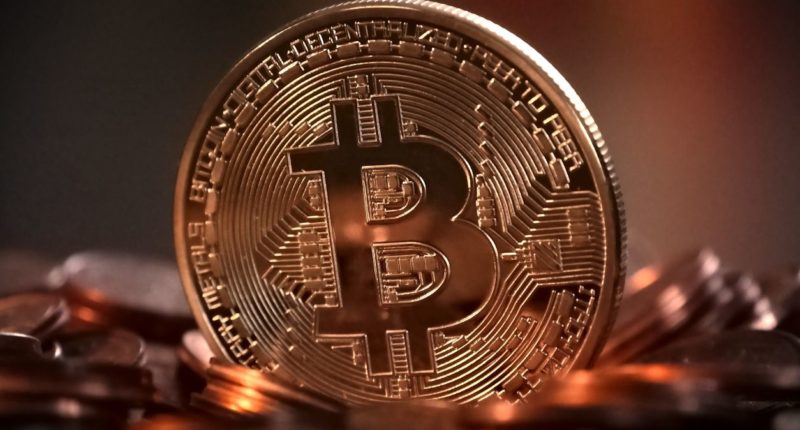Since Bitcoin came into existence in 2009, it has attracted attacks and criticisms by analysts and investors. Looking at how this digital currency has paved its way to becoming a celebrated trading option, those rumors have become only myths now. Let’s put some light on the misconceptions about bitcoin.
- Bitcoin is often called out as a “Ponzi Scheme.”
When critics lose at arguments, they often settle by calling bitcoin a Ponzi scheme. It is very natural for investors to be cautious to avoid any potential scams. There had been reports initially of coin offerings that turned out to be fraudulent. However, the same can happen with any traditional investment methods. It can only be avoided if the market is studied and analyzed thoroughly to understand the opportunity elements. Any insightful investor understands to treat cryptocurrencies just how they treat other potential investments, with a hint of scepticism and a lot of research. This trading website allows in-depth review of the same: https://bitcoinstorm.io/.
Just as it is essential to weigh out good and bad investments, it is vital to look through investment opportunities to understand if they are worth grabbing. No trading market can promise you complete honesty, but doing your research helps reduce the chances of becoming a scam victim.
- Bitcoin is in a Speculative Bubble
The rapid ascent of Bitcoin in the years 2017 and 2018, resulting from numerous Reddit discussions among fans and suddenly the fall in the price, had made critics believe that bitcoin is in a gigantic speculative bubble. But the market is maturing. People were confused then and were discovering the potential of the newly launched technology. Now people are more aware and have got time to study the market. Investors are rooting for this technology, and they believe that there is still a lot of value to be discovered.
- Bitcoin is not secure.
The critics of Bitcoin have repeatedly shown concern about the security of blockchain technology. You might frequently hear people stating that Bitcoins have been hacked several times in the past. But the truth is bitcoin itself has never been hacked. It is the cryptocurrency trading platforms that compromise security.
The blockchain technology of bitcoin is monitored 24/7 by “miners.” Hackers target the vulnerabilities of bitcoin wallets and other loopholes of cryptocurrency platforms. There have been many instances when the security breaches of these platforms had led to big losses. The most scandalous hacking was of Mt. Gox that took place in 2014.
Bitcoin or the blockchain technology behind it has never been hacked. Although, on August 15th, 2010, there was an incident of ‘value overflow.’ This was when Bitcoin developers’ efficiency was highlighted, and people started showing faith in this digital currency. It hardly took some hours for the developers to bring the blockchain back into action. During this incident, bitcoin was not available for only 8 hours 27 minutes. What is worth noting is that recently we have observed many governments and financial institutions invest in blockchain technology.
- Bitcoin is a medium for Money Laundering.
When the price of Bitcoin had suddenly skyrocketed in 2017, breaking all records, banks displayed complete distrust in this cryptocurrency. But some studies pointed money-laundering would be highly risky using bitcoins.
Individuals with bad intentions and criminal enterprises have invested in bitcoins, but that could be the case with other fiat currencies. The reason why this myth had spread like a fire is anonymity, which is the driving factor of this cryptocurrency. When bitcoin was rising to fame, it first became popular in the black markets. The distinctive aspects of bitcoin, like anonymity, can be enticing to people involved in illegal business. What is worth mentioning is that the transactions are illegal, not bitcoin itself. Criminals can very well use any other fiat currency for such purposes.
- Bitcoin is Valueless
Cryptocurrencies are something that has never been dealt with before. People fail to categorize it. The US has spent years determining how these digital currencies should be taxed. Even after having invested in bitcoins, investors find it difficult to calculate their digital assets for tax purposes or everyday transactions.
These are the reasons critics had concluded that digital currencies would disappear in a few years. On the contrary, bitcoin has only risen to prominence and popularity in this short period since its existence. Coming to its value, bitcoins can be exchanged to pay for goods and services. The deal is determined according to the market conditions. In addition to that, the introduction of the Lightning Network protocol to speed up transactions at minimal fees paves the way for bitcoin to become a stern competitor of fiat currencies.
- Bitcoin is Affecting the Ecology
This is a valid reason for concern as blockchain technology responsible for mining bitcoins uses an enormous amount of electricity. ‘Hashing’ or solving complex mathematical problems while competing with other miners to find the hash first requires intensive computational power. It is the power consumption needed that makes bitcoin so valuable. The value of bitcoin outweighs the cost of the mining operation.
However, there is a hard limit set on the total number of bitcoins that can be mined. After that, no bitcoins are allowed to be produced. The cost of computational power will drastically reduce then, stabilizing the ecology. There are also plans that the electrical energy consumed for mining bitcoins would be derived from renewable energy sources.
Points in favor of Bitcoin
- Decentralized
What attracts investors is the transparency blockchain technology provides. Every transaction is recorded in blocks that can be visited anytime by anyone. It allows users to remain anonymous behind a cryptographic series of numbers, but cryptocurrency flow is visible to everyone. Without having a centralized entity monitor transactions, bitcoin works smoothly without security breaches. This feature has attracted rebels who have lost faith in traditional financial establishments.
Bitcoin does not owe any censorship to the government. It is an independent currency, operating on a tamper-proof ledger distributed among users by blockchain technology. It enables peer-to-peer transactions that are cryptographically encrypted. There is no scope for the involvement of financial institutions as intermediaries.
As banks are not responsible for issuing cryptocurrencies, one can avoid centrally-planned distribution. It uses a consensus mechanism, known as proof-of-work, which helps this decentralized network limit the over-mining of coins.
- Privacy and Security
Bitcoin holders are given complete authority over their personal information and financial data. The only way to access the bitcoin is through the cryptographic private key to the owners’ wallet. The risk of identity theft, familiar with fiat currencies and credit cards, is minimized. Only bitcoin wallet addresses of the parties involved are displayed when a transaction is conducted, concealing the actual identity.
The blockchain ledger is spread over various nodes, which are monitored by developers. Miners work 24/7 to validate transactions and update them on the blockchain. Every data is recorded through a hash function with timestamps. There are no chances of overwriting or manipulating the data as every change is notified to all users.
- Returns
The increasing hash rates have displayed the potential profitability of bitcoin mining as well as investing. Apart from using it as a currency, bitcoin can be deemed a highly lucrative investment medium. As the supply is limited, it is inherently deflationary. Transaction fees are significantly lower than real-world cross-border transactions.
- Speed
Bitcoin transactions are quicker than banking channels. It only takes a few minutes to an hour to conduct a payment. There are also options for instant transactions if users update “zero-confirmation.” It means agreeing to accept a transaction that has not been reflected on the blockchain.
Credit cards and digital wallets also allow instant transactions but charge a hefty fee. The fee of cryptocurrency transactions is deliberately kept very minimal.
- Greater Access
Bitcoin transfers are facilitated through the medium of the internet. Bitcoin services are made available to anyone with access to the internet and relevant websites and knowledge of buying the cryptocurrency. Study shows that around 2.2 billion people worldwide have access to the internet, but not all of them have ready access to banks and traditional exchanges. Bitcoin opens in the sea of opportunity to the plethora of willing consumers who are waiting for a medium.
Not all countries have an established financial system to serve every countryman. Cryptocurrency is a potential solution to such a disadvantaged population.
People or institutions who readily benefit from the traditional financial system have woven many myths surrounding bitcoins. These false narratives were only possible due to the lack of knowledge among ordinary people. These myths are successfully debunked, and financial analysts see great potential in this digital currency.




